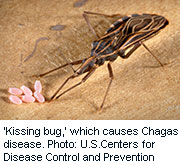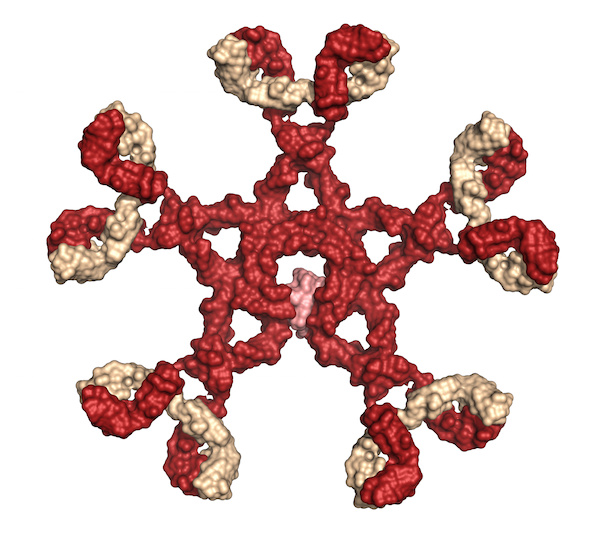
TUESDAY, Nov. 4, 2014 (HealthDay News) — Residents of the southern United States may be at risk for a parasitic infection that can lead to severe heart disease and death, three new studies suggest.
Chagas disease, which is transmitted by “kissing bugs” that feed on the faces of humans at night, was once thought limited to Mexico, Central America and South America.
That’s no longer the case, the new research shows.
“We are finding new evidence that locally acquired human transmission is occurring in Texas,” said Melissa Nolan Garcia, a research associate at Baylor College of Medicine in Houston and the lead author of two of the three studies.
Garcia is concerned that the number of infected people in the United States is growing and far exceeds the U.S. Centers for Disease Control and Prevention’s estimate of 300,000.
In one pilot study, her team looked at 17 blood donors in Texas who tested positive for the parasite that causes Chagas disease.
“We were surprised to find that 36 percent had evidence of being a locally acquired case,” she said. “Additionally, 41 percent of this presumably healthy blood donor population had heart abnormalities consistent with Chagas cardiac disease.”
The CDC, however, still believes most people with the disease in the United States were infected in Mexico, Central and South America, said Dr. Susan Montgomery, of the agency’s parasitic diseases branch.
“There have been a few reports of people becoming infected with these bugs here in the United States,” she said. “We don’t know how often that is happening because there may be cases that are undiagnosed, since many doctors would not think to test their patients for this disease. However, we believe the risk of infection is very low.”
Maybe so, but kissing bugs — blood-sucking insects called triatomine bugs — are found across the lower half of the United States, according to the CDC. The insects feed on animals and people at night.
The feces of infected bugs contains the parasite Trypanosoma cruzi, which can enter the body through breaks in the skin. Chagas disease can also be transmitted through blood.
It’s a silent killer, Garcia said. People don’t feel sick, so they don’t seek care, but it causes heart disease in about 30 percent of those who get infected, she said.
In another study, Garcia’s team collected 40 insects in 11 Texas counties. They found that 73 percent carried the parasite and half of those had bitten humans as well as other animals, such as dogs, rabbits and raccoons.
A third study found that most people infected with Chagas aren’t treated.
For that project, Dr. Jennifer Manne-Goehler, a clinical fellow at Harvard Medical School and Beth Israel Deaconess Medical Center in Boston, collected data on nearly 2,000 people whose blood tested positive for Chagas.
Her team found that only 422 doses of medication for the infection were given by the CDC from 2007 to 2013. “This highlights an enormous treatment gap,” Manne-Goehler said in a news release.
The findings of all three studies, published recently in the American Journal of Tropical Medicine and Hygiene, were to be presented Tuesday in New Orleans at the annual meeting of the American Society of Tropical Medicine and Hygiene.
Symptoms of Chagas can range from none to severe with fever, fatigue, body aches and serious cardiac and intestinal complications.
“Physicians should consider Chagas when patients have swelling and enlargement of the heart not caused by high blood pressure, diabetes or other causes, even if they do not have a history of travel,” Garcia said.
However, the two treatments for this disease are “only available [in the United States] via an investigative drug protocol regulated by the CDC,” Garcia said. They are not yet approved by the Food and Drug Administration.
Efforts are under way to develop other treatments for Chagas disease, Montgomery said.
“Several groups have made some exciting progress in drug development,” she said, “but none have reached the point where they can be used to treat patients in regular clinical practice.”
More information
For more about Chagas disease, visit the U.S. Centers for Disease Control and Prevention.
Copyright © 2026 HealthDay. All rights reserved.

